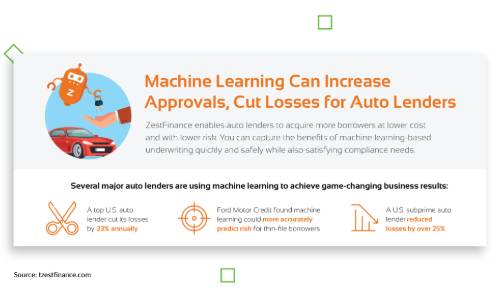 As technology advances and the applications of artificial intelligence grow, financial institutions are in a prime position to experience disruption. Whether that disruption has a positive or negative impact on portfolios rests in the hands of wealth management firms and how they choose to manage new technology.
As technology advances and the applications of artificial intelligence grow, financial institutions are in a prime position to experience disruption. Whether that disruption has a positive or negative impact on portfolios rests in the hands of wealth management firms and how they choose to manage new technology.
The Risks of Artificial Intelligence
It’s clear that consumers like the financial technology revolution and have come to expect it as part of their experience with wealth management firms. That means financial institutions (FIs) don’t really have a choice – they must jump on board and digitize their operations. It is simply a matter of survival in today’s digital era.
The problem lies with cyber security. As an FI digitizes its operations, it is then vulnerable to new forms of digital fraud and other risks. There are plenty of examples of FI digitization leading to fraud, hacking or systemic failure.
Just recently in 2018, the market experienced the largest ever intra-day trading crash. The 1,600-point drop occurred in just seconds, and programmed trading is thought to be the cause.
Preventing Cyber Attacks

To help prevent cyberattacks and fraudulent activity, it’s crucial that AI is embedded in both customer-facing applications and in the back end.
Regulators are handling artificial intelligence by keeping a keen eye on how it impacts financial markets. In turn, this decreases the importance of evaluating a firm’s performance while (gradually) increasing market volatility. We know extreme volatility will initiate the next financial crisis. However, the unknown factor is the effect AI will have on that crisis.
Will it lessen the impact? Or will it make the impact worse? Unfortunately, that’s the big question that financial institutions are pondering but likely won’t know until we all experience it.
Wealth Management Firms & AI Advantages
Risks in check, financial institutions can certainly use AI to their, and their investors, advantage. Primarily, AI is being implemented in the financial industry in five key areas.
1. Fraud prevention is where AI stands out, especially as machine learning is catching up with, and surpassing, cyber criminals. The increase in online shopping and financial transactions has led to an increase in credit card fraud. AI fraud detection systems analyze spending behavior and physical location(s), then trigger a red flag when something is out of the ordinary.
AI machines also work to recognize potential money laundering activities. This focus alone may reduce investigative work load by 20%.
2. AI increases the speed, accuracy and objectivity of credit decisions, while also accounting for more factors. For instance, AI credit scoring can distinguish between a lender with a high default risk and one who just doesn’t have an extensive credit history. Decisions are backed by data and better informed.

3. Processing power has positive impact on risk management. Massive amounts of structured and unstructured data are handled in a small amount time through the enormous processing power of AI. These are tasks that would take a human far too long to complete. AI algorithms also analyze risk case history and identify potential future issues – early.
4. Personalized banking is perhaps where consumers are most familiar with artificial intelligence in the financial industry. Have you ever had a chat box pop up while you’re banking online, perhaps with info that relates to exactly what you were just looking at? Or have you asked Alexa or Google to check your account activity or pay a bill? That’s AI in action.
5. Process automation is how AI is streamlining wealth management firms’ operations. Robotic processes can replace mundane, high-frequency, repetitive tasks, such as reviewing documents to verify data, pulling data from forms and generating reports.
Not only does this save human workload, time and cost, allowing focus to be directed to more cognitive tasks, but it also eliminates human error. Forbes has actually called robotic process automation (RPA) the “gateway drug to AI.”
AI Adoption Across Industries
To put AI’s far reaching potential into perspective, consider how it is being successfully used in other industries:
• In the travel industry, AI helps optimize sales and price. It makes personalized suggestions for consumers based on their search data, like dates and location. It has also helped prevent fraudulent transactions.
• In education, automatic grading has boosted the popularity of online courses. Countless lives and careers have benefited from more accessible education opportunities.
• Healthcare uses AI for robotic surgeries, as well as to streamline administrative tasks. This reduces the cost of human labor while allowing providers to spend more time with patients.
Wealth Management Firms Embracing AI
 Wealth management firms that can successfully implement machine learning technologies will undoubtedly outperform competitors and be major players in the financial markets.
Wealth management firms that can successfully implement machine learning technologies will undoubtedly outperform competitors and be major players in the financial markets.
While the majority of experienced financial advisors acknowledge AI’s disruption and expect positive changes in the industry through implementation, studies show that few are actually taking advantage of the new technologies. FAs that fail to embrace their own AI future are destined to become less relevant, competitive, and profitable.
Stableford Capital selectively picks and chooses where artificial intelligence is most useful or relevant to our clients. Deploying the AI algorithms to process data and utilizing state-of-the-art learning methodologies is good for clients and good for the financial industry.
Because Stableford Capital customizes every client’s financial road map, this may mean that some AI applications are well-suited for one client but not another. To learn more about how we utilize artificial intelligence to bolster your portfolio, contact us online or call 480.493.2300.
